Berlinale & EFM Review Daily










VERDICT: Extraordinary for its sensitivity and perception, Estibollz Urresolo Sologuren’s story of an 8-year-old girl’s growing discomfort with being perceived as a boy is a landmark in the filmic discussion of gender, sexuality and identity.
Deborah Young, February 22, 2023

A child’s view of her own gender comes increasingly in conflict with the way her family sees her, until things boil over one summer in the glorious Basque countryside in Spain. Making her feature film debut after several shorts and a long documentary, Estibollz Urresolo Sologuren chooses a measured, naturalistic style to explore the pressing need of
eight-year-old Cocó (the remarkable Sofia Otero) to make the people in her world recognize her as the girl she feels herself to be.
Steering away from exaggerated drama and concentrating most of the scenes on the little girl and her mother Ane (emerging Spanish actress Patricia Lopez (Continues page 4)
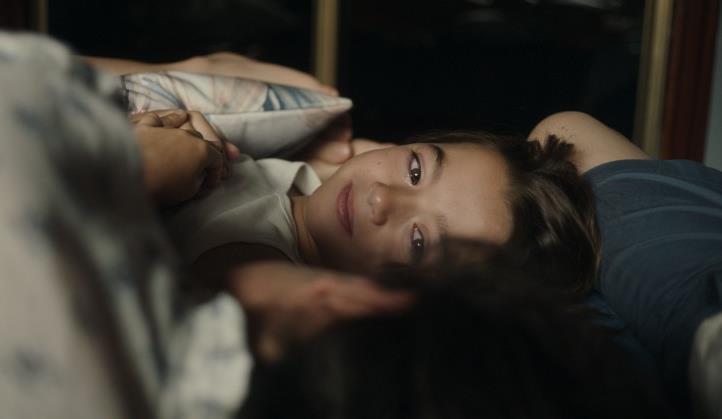
VERDICT: Christian Petzold is in top form with this intimate summer drama that quietly builds to an unexpected, heartwrenching finale.
Jay Weissberg, February 22, 2023
“Generosity” isn’t a word one usually thinks of using about Christian Petzold’s films. His characters are always complex yet often too pent up to generate warm feelings on top of our sympathy. Afire is an exception, a supremely generous film that accords even its main character, a sullen young writer stymied by his constitutional inability to see rather than merely observe, a perhaps undeserved measure of grace. The director’s latest marks a welcome return to a more contained, intimate story in which the world’s catastrophes, here Full Review
VERDICT: Payman Maadi gives another outstanding performance in a deeply layered refugee drama that isn't always the sum of its parts.

Jordan Mintzer, February 22, 2023
There’s a simple pitch in Iranianborn Swedish director Milad Alami’s second feature, Opponent (Motståndaren), that becomes anything but simple as the story progresses.
Following the travails of a professional Greco-Roman wrestler named Iman (Payman Maadi), who’s forced to flee Iran with his family and winds up in the snow-capped hills of northern Sweden, the film could very much have been a sports inspiration flick about immigration, assimilation and overcoming the odds to win the gold medal. But Alami has other things in mind for his sophomore effort, which is truer to life and bleaker in what it proposes, revealing the bureaucratic hell and cultural dissonance many refugees experience when fleeing to faraway lands. Full Review
VERDICT: South Korean auteur Hong Sang-soo teases all the humour and melancholy out of his young cast in a comedy of awkward manners bowing in the Berlin sidebar Encounters. Clarencs Tsui, February 22, 2023

South Korean auteur Hong Sangsoo has always had his fair share of detractors. With In Water (Mulan-e-seo), however, he runs the risk of alienating the whole profession of projectionists, who are asked to calibrate their machines (as well as their eyesight) to screen a film that’s shot entirely out of focus. Cue groans and complaints from disoriented viewers, who are going to find it difficult to discern the actors’ facial expressions or any details in the sunny vistas on the resort island of Jeju, where the film is set.
It’s easy to consider this as Hong’s reaction against that running joke – mainly from jaded film critics –that he’s making the same film
over and over again. But let’s call this an experimental technique: as if taking his cue from Gerhard Richter, who once said the blurred images in his paintings “make everything equal, everything equally important and equally unimportant”, Hong’s blurring is just one of many decisions made to force audiences to cast aside distractions and zero in on the dialogue. Another more noticeable departure is the absence of his stellar repertory company, as he casts three relatively unknown young actors in the leading roles.
Faced with all this, audiences must resign themselves to listen to what they cannot look at. Full Review

Arnalz), 20,000 Species of Bees (20.000 especies de abejas) opens audiences up to a new understanding of trans kids, especially the idea that it is not the child who needs to transition, it’s the family and society who need to change their perceptions. By showing this as a process of growth, albeit one fraught with emotional obstacles, Urresolo Sologuren adds something new to the discourse, while young Otero’s entrancing debut holds the attention even without major dramatic quakes. It raises the bar for trans stories and its bow in Berlin’s main competition should be followed by a full festival and art house life.
Unlike Lukas Dhont’s widely hailed Belgian film Close, which exhibits similar sensitivity in dealing with young people’s sexual identity in the face of social prejudice, 20,000 Species of Bees chooses to focus on a single individual whose precocious gender sensibility creates unease in her extended family. The film’s title ties in with the social roles which appear rigid and fixed in nature, but which are much more fluid in human society. When Cocó regales her beekeeping aunt with her imaginative interpretation of life in a beehive, she equates herself with the queen bee. It is one of many moments when her gender identity emerges naturally, without censorship. And it startles her aunt.
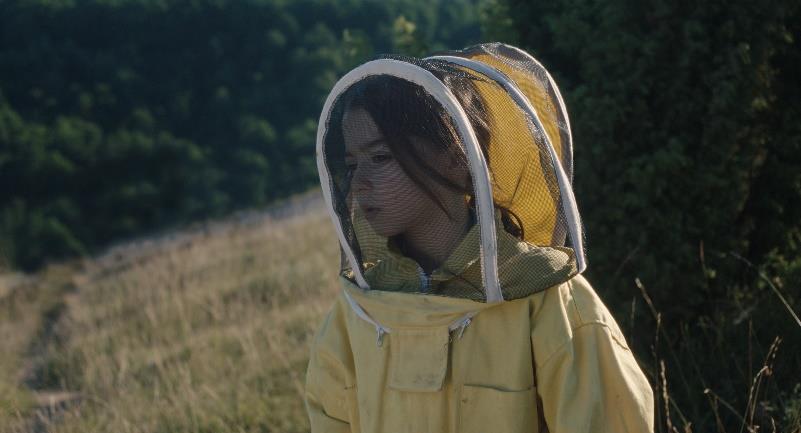
Cocó’s birth name is the masculine Aitor, though she dreams of being called Lucia, like the saintly martyr who was tortured rather than renounce her faith. The saint’s story, briefly recounted by her religious grandmother, obviously makes a big impression on her. Cocó has an iron will and no intention of conforming to social expectations, though she remains conflicted about showing her male body in public, particularly in a swimming pool scene in the girls’ changing room. Later, the same conflict reappears when she wants to wear a dress to a formal family event. Full Review
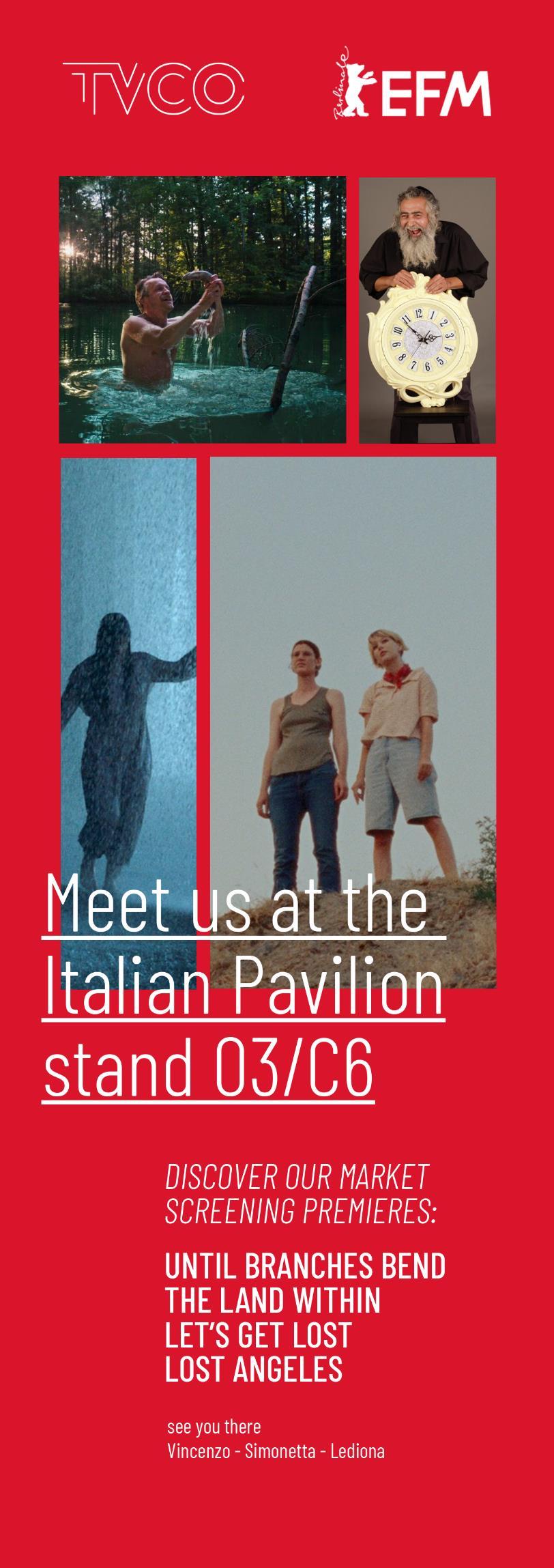

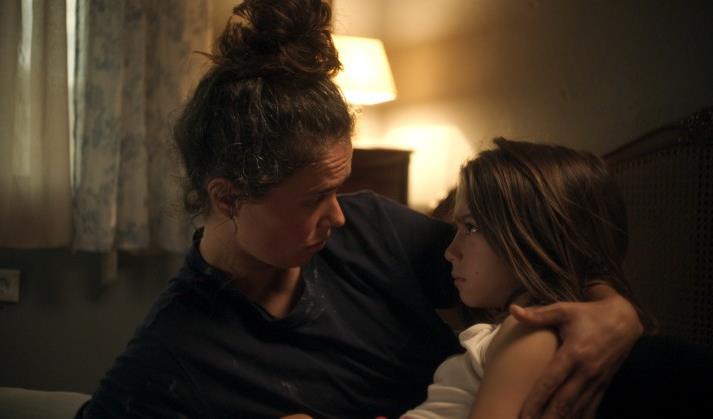
VERDICT: La historia sobre un niño de 8 años que siente una creciente desesperación de ser percibido como masculino es extraordinaria por su sensibilidad y percepción. Será un marcador en la discusión fílmica de género, sexualidad e identidad.
Deborah Young, February 22, 2023
La visión de un niño sobre su propio género entra cada vez más en conflicto con la forma en que su familia la ve, hasta que las cosas llegan a la ebullición durante un verano en la gloriosa campiña vasca de España. Estibollz Urresolo Sologuren, que debuta en el largometraje de ficción tras varios cortometrajes y un largo documental, elige un estilo mesurado y naturalista para explorar la apremiante necesidad de Cocó (la notable Sofía Otero), de ocho años, de hacer que la gente de su mundo la reconozca como la niña que ella siente que es.
Alejándose del dramatismo exagerado y concentrando la mayoría de las escenas en la niña y su madre Ane (la actriz española emergente Patricia López Arnalz), 20.000 especies de abejas abre al público una nueva comprensión de los niños trans, especialmente la idea de que no es el niño quien necesita hacer la transición, es la familia y la sociedad quienes necesitan cambiar sus percepciones. Al mostrar esto como un proceso de crecimiento, aunque lleno de obstáculos emocionales, Urresolo Sologuren agrega algo nuevo al discurso, mientras que el fascinante debut de la joven Otero mantiene la atención incluso sin grandes estridencias dramáticas. Eleva el rasero de las historias trans y su presentación en la competencia principal de Berlín debe ser seguida por una larga secuencia de festivales y cines de arte. Full Review
The unnamed woman (voiced by Naomi Christie) finds that the website she wants already exists and, very unexpectedly, it is full of animated videos that are clearly based on her social media feeds. The rest of the film then takes the form of these unusual cartoons as they play out on screen while the young woman tries to understand why exactly someone has done this with her likeness.

VERDICT: This strange and engrossing short blends a surreal and slippery story about a bizarre online relationship with Stephen Vuillemin’s glorious animation. Ben Nicholson, February 22, 2023

A young woman goes online to purchase a web domain based on her name and comes across something deeply unsettling in
Right from the opening sequence, the imagery combines a vibrant colourfulness and a bristling vitality with something altogether more sinister and menacing. The camera pans up over a bouquet of flowers, glowing in saturated reds, yellows, and violets – pulsating with life. It pans down again, an instant later, only to reveal them wilted, browning, and covered in flies. Full Review

journey back to Country from his urban life in Adelaide for what is, effectively, spiritual rejuvenation. It explores elements of growing up queer in an Aboriginal community, the complex relationships we have with places, and the restorative power of reconnecting with the land that bore us– in Derik’s case via performance on sacred ground reserved for traditional storytelling.
VERDICT: This deeply personal documentary follows an Australian Aboriginal man as he escapes the chokehold of the big city to reconnect with Country.

Ben Nicholson, February 22, 2023
“As an Anangu person,” explains Derik Lynch in the opening seconds of Dipped in Black, “when I go to a different Country, I don’t
feel at home.” The film, a hugely evocative hybrid documentary that is directed by Lynch and Matthew Thorne, depicts his
Against the presentation of Derik’s homecoming, he and Thorne intersperse several sequences that re-enact memories of his growing up (Dominic Roberts. Christopher Stewart, and Dale Baker all play him at various stages of his childhood). Typically, these don’t strike a nostalgic tone, but instead, find Derik in a reflective mood Full Review

deep dives into Italian film standing in the world and asks the Directorate General of Cinema and AudiovisualMinistry of Culture at Cinecittà, Roberto Stabile, “Has it lost its shine to not win an Oscar(s) any more?”
Roberto Stabile is the man behind ANICA’s renewed drive to revive and expand Italy’s international film markets.
Portuguese auteur João Canijo is making his Berlinale debut with a Competition/Encounters diptych set in a hotel.
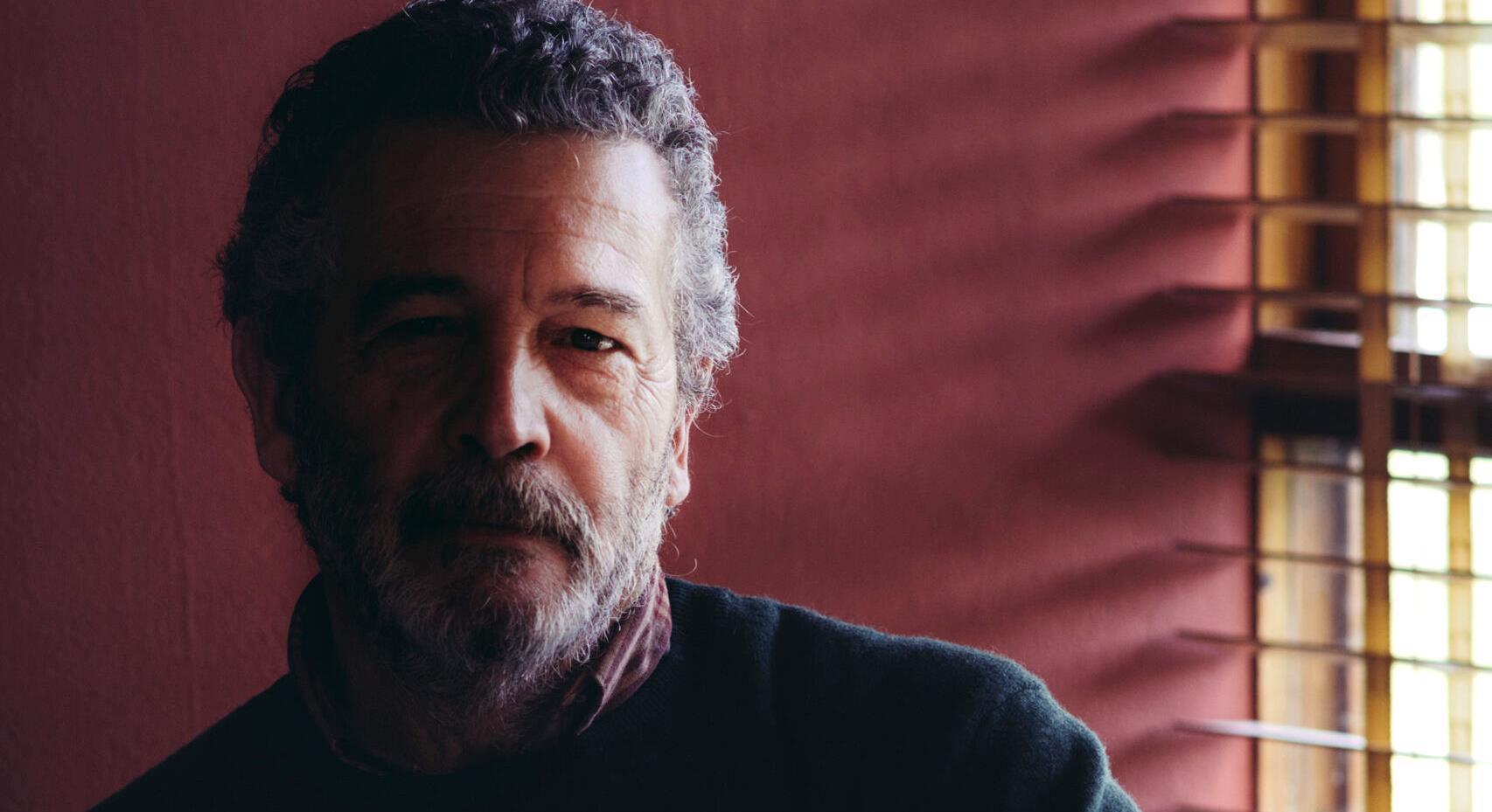
After his early break as an assistant to Manoel De Oliveira (as well as to Wim Wenders and Werner Schroeter), writer-director João Canijo has made a name for himself as a great Portuguese filmmaker in his own right. A regular at Cannes, Rotterdam (which he opened in 1988 with his feature debut Three Less Me) and Toronto, he’s also visited San Sebastián, where Blood of My Blood won the FIPRESCI Prize in 2011. That film also became Portugal’s Oscar submission in 2012, the second time for Canijo after 2004’s In the Darkness of Night, one of his collaborations with famed producer Paulo Branco. In 2023, he is making his Berlinale debut with a diptych consisting of Living Bad and Bad Living: the former screens in international Competition, the latter in Encounters. A choice that was tied to how to best present the two works to the festival audience, as Berlin’s artistic director Carlo Chatrian told The Film Verdict: one film has a more cohesive structure, and is thus better suited for the main competition, while the other is episodic, consisting of three stories, and therefore found its home in the more formally daring Encounters strand. The two works are separate, and can be enjoyed on their own merits, but are nonetheless intertwined through their shared location of a family-run hotel on the northern shores
of Portugal. Bad Living focuses on the women in charge of the venue, while Living Bad deals with three different families staying at the hotel, with the protagonists of one half of the diptych becoming background characters in the other.
The two films are also very different in conception: Bad Living is akin to Mike Leigh’s philosophy of filmmaking, whereby the screenplay was created over a long rehearsal period with the actresses, to capture the truth of a tragic tale of bitterness, as three generations of women are forced to stay under the same roof even though they can barely tolerate each other. Conversely, Living Bad borrows freely from three plays by one of Canijo’s favorite authors, the Swedish dramatist August Strindberg. The latter’s writings also create a bridge to another important influence, the Scandinavian maestro Ingmar Bergman (whose maxim “a film has to come from an idea that is present in every scene and in every shot” is central to the Portuguese auteur’s creative mindset).
Such an ambitious undertaking, which promises layers of introspection mirroring each other across Full Interview
– Max Borg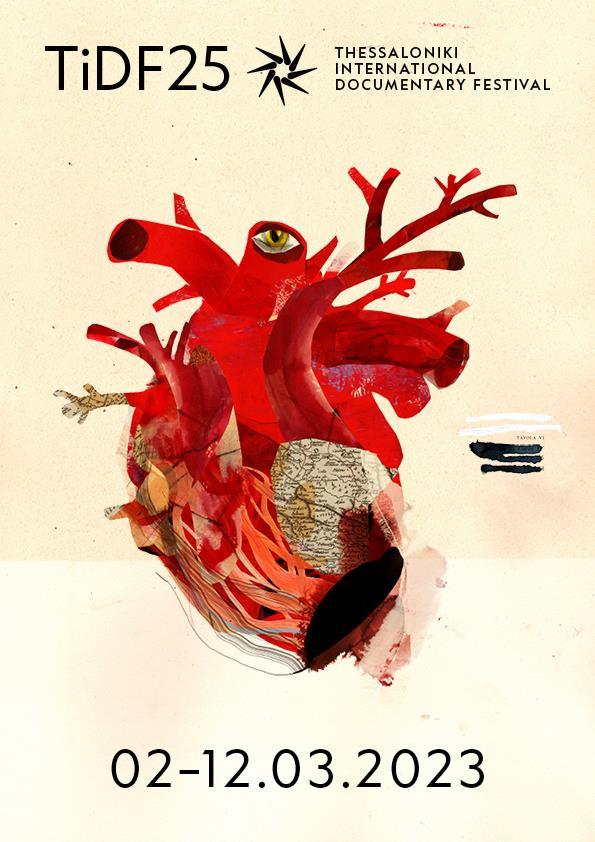

ianluca Curti grew up in one of the most important dynasties of Italian cinema. He is the CEO of independent Italian producer and distributor Minerva Pictures, a 2,000-title-strong company founded by his grandfather, Antonio Curti, in 1953, and headed by his father, Ermanno, before he took over. His mother was Italian actress Leonora Ruffo, known for her role in Federico Fellini’s comedy drama, I Vitelloni. Gianluca started his career in film production in 1991, right away winning a prize at the Giffoni Film Festival for his first film, Buck at the Edge of Heaven, an adaptation of Jack London’s The Call of the Wild, directed by Tonino Ricci and starring John Savage. Since 2019, he has also been president of the CNA, the Italian confederation of craft trades and small to medium size businesses. This gives him a unique insight into the Italian film industry, which The Film Verdict asked him to share with our readers. He is at EFM with three market premiers: What Remains directed by Ran Zhuang, Hill of Vision by Roberto Faenza, and The Man on the Road by Gianluca Mangiasciutti.
TFV: You come from a legendary family that has been in the film business for quite some time. You have taken your business to new heights and are also the President of CNA. Let’s begin with that in mind and ask a broad question: What are the major changes that you have observed in Italian cinema since you first began in the business, and how has Minerva Pictures led the way or responded to it?
Gianluca: A lot has changed since I first started. For one, the production process has changed over the past 30 years: particularly so in the past few years. The producer now has to wear two, three or four different hats at the same time. We now have to have expertise not only in production, but also in screenwriting, publishing, finance, and government funding, and we must also understand what sells. For that, our job today is more interesting and more challenging than in the past. We must be alive and kicking, so to speak. As for Minerva Pictures, we are pioneers of digital publishing and distribution. We were the first in Italy, and perhaps even in Europe, to have understood the digital challenge.
TFV: Many producers and filmmakers have welcomed the advent of streamers like

Netflix and Amazon in production. Do you think in the long run this could hurt Italian Cinema, causing it to lose its identity, and steering viewers away from the cinema?
Gianluca: I want to be optimistic. Streamers are important players with deep pockets, and they are causing a change of attitude among the producers. It wasn’t easy at first. In Italy, film directors have the ‘final cut’ and the copyright. Italian directors and producers are used to having a lot more power, compared to the US where they follow the algorithm. This was a shock to us initially. But Italian producers quickly figured out this new system and the result has been an interesting synthesis. Now we produce a lot more than we used to, thanks also to the Italian tax credit laws. Today, production costs have gone up by 30%. There is full employment in the industry, and it is hard to find people to come to work on the set. The question now is to maintain reciprocal respect through rules of engagement that allow us to continue to be content owners. It’s a complex issue, but I hope we will soon come to an agreement between independent producers, broadcasters, and streamer. This is very, very important. Ultimately, I must say that the impact of the streamers has been absolutely positive. We must pay a lot of attention to women and young producers under the age of 30 in the agreements between us and the streamers. This to me is very important politically. Otherwise, the market will
Continues next page
grow, but only the big producers like Minerva Pictures will see the benefits. I hope there will be laws that will allow independent producers to remain in the market. There are very few of us left anymore that are still 100% Italian.
TFV: MovieItaly is an Italian film streaming service that you launched in North America less than a year ago. Has it been successful so far?

Gianluca: Yes, for what we have invested in it. To launch something like that in the US and Canada one would need $20 million. But we chose to invest our own money in it without asking for government subsidies. We want it to have a pivotal role in marketing all sorts of Italian products – the Made in Italy brand, as we call it. Whether it’s wine, oil, fashion,
or whatever else, if you don’t have money to invest in advertising for your product, you can become a sponsor and get the exposure you need. We screened “Il Conformista” in New York, and it was a big hit. Italy’s new government is very interested in promoting the Made in Italy brand. At the same time, the feedback from subscribers has been very good. They like the technical infrastructure of MovieItaly and its graphic layout. So far, we have 2,000 subscribers and we want to reach 50,000 in 24 months and from there 100,000. For us, that would count as success.
TFV: Speaking of government funds, some of Italy’s bestknown films were made with little to no European subsidies. Do you think having European subsidies stifles creativity by pushing down the drive, passion and ambition to make a great film?
Gianluca: For 50 years, in the West the Italian film industry was second only to Hollywood. We had extraordinary film directors and actors, from Vittorio De Sica to Gabriele Salvatores to Federico Fellini and so on. Then, new cinemas arrived from Hong Kong, Spain, the Middle East and so forth, while French cinema was becoming stronger. In Italy, instead, we spent the past 20 years making films that were good for the domestic market only and that could be broadcast on Italian TV after their theatrical release. This is how we slowed down. But now, thanks to the streamers, we are thinking global again. In this context, the subsidies are very important. Without them, we can’t be competitive at all. The subsidies also provide an incentive to bring big foreign productions, like James Bond films, to Italy.
TFV: If I am not mistaken, the last big film award Italy won was with the 2013 film The Great Beauty, with 60 some awards, including the 2014 Oscar for Best International Feature Film. Some have said that Italian films have lost a bit of their shine in the international market –do you agree?
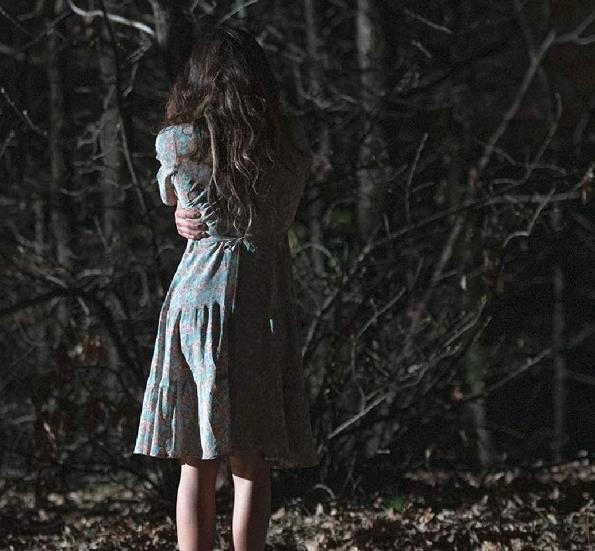
Gianluca: There is huge competition from Asia, Africa, South America, and Eastern Europe. On top of that, the Italian commission that decides which films to send to the Academy Awards has five members. In the past 10 years, in nine out of ten cases I would have opted for a different film to send to the Academy Awards. There were some very good films, but they were not chosen. Of course, it’s also a question of personal preference. But I know the tastes of the American, German, and other international markets. Every year we produce two or three great films [that could do well at the Oscars].
Full interview, Click here
